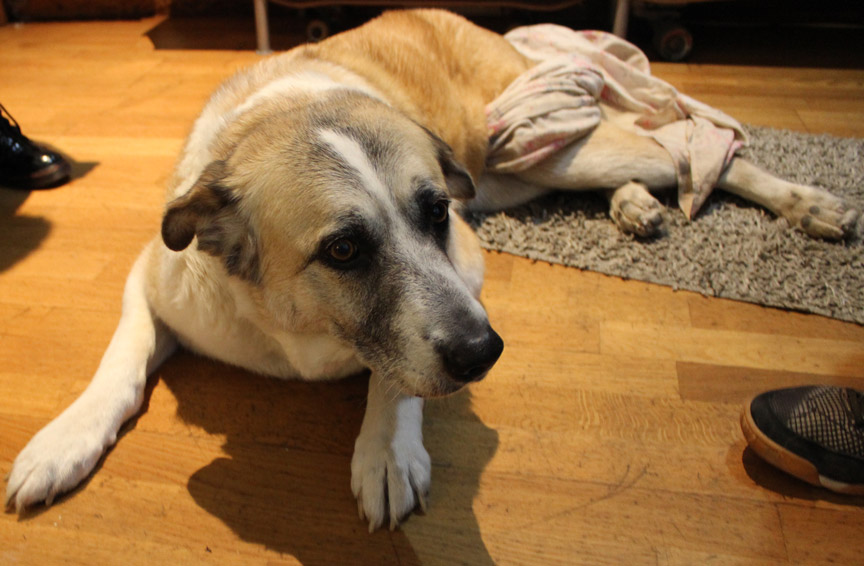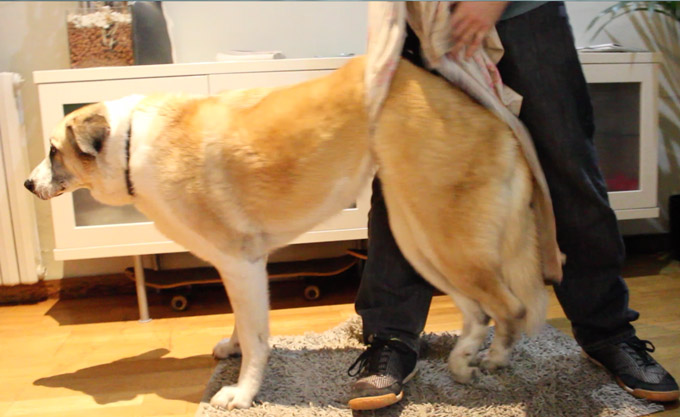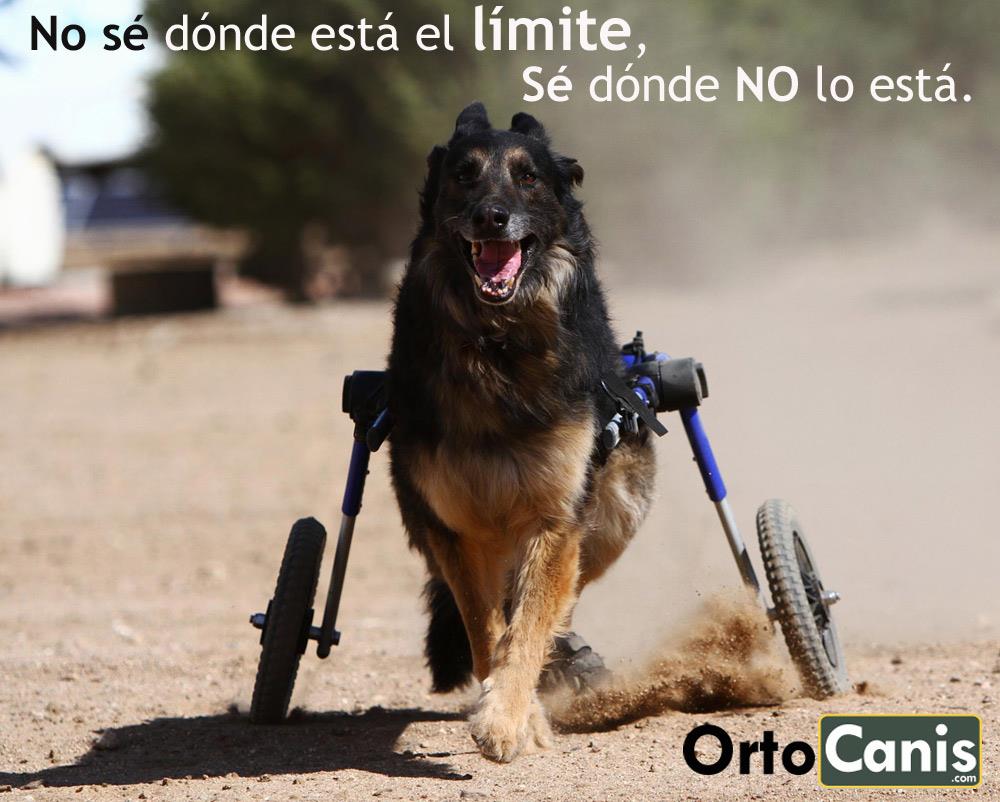What to do When Your Dog is Paralyzed
By M. Gruardia (16/06/09)
About 8 months ago our dog suffered a herniated disc and was left paralyzed from the waist down. The first thing I’ll say is that when you find yourself in a situation like this you can feel pretty lost, because once your dog is operated on you find yourself at home without really knowing what you’re supposed to do, without information, without knowing if the dog will make it out okay, etc. But yes, the dog can make it out okay and have a perfect quality of life if you want to make it happen.
The first couple weeks were pretty tough because you mix confusion with the postoperative care, which is pretty delicate. It raises many questions and new situations that you have to get used to. Our list of questions during the first weeks was endless:
- Will they be in pain?

- Will they have a quality of life?
- Will we be able to adapt our routines to the new situation?
- Will they be able to urinate?
- Will they be able to defecate?
- Will they walk again?
- How will we move our dog? (our dog weighs 37 kg)
- Will they be able to stay on their own?
- Will they be depressed?
- Is it going to cost us a lot of money?
- Will they need special care?
…
The truth is that these questions may occur to you and may seem silly but in this situation everything is overwhelming. All of these questions have an answer and at the end you will adapt to the new situation and it will be worth it when you see for yourself how happy your dog is. Those who are in this situation know that the dog can live and have a great life, I repeat this because there are several vets who will tell you that if after the operation the dog can’t walk again the only solution is euthanasia, which simply isn’t true. That is the fastest and easiest option for some, but in no way is it the best option for the dog.
Answers to all of the previous questions (if it’s any guidance to those who find themselves in the same situation):

Will they be in pain? Once they’ve been operated on, it won’t hurt.
Will they have quality of life? They will have an excellent quality of life if you so desire.
Will we be able to adapt our routines to the new situation? You will, they fully recover better and faster than humans.
Will they be able to urinate? It will depend on the case. In our case he can’t do it alone, but this has an easy solution: you massage them 3 times a day in order to empty it (in 3 minutes you will have finished emptying the bladder). The vet will show you how to do this.
Will they be able to defecate? Yes, you will also realize that it will happen at the same time almost every day and that they are usually aware of when (and when they do they usually move away). Put an absorbent underpad underneath of them at the beginning until you adjust. At first our dog defecated at night and we had to get up and clean him off but within a few weeks he stopped. A suggestion: be stricter with their diet. And while sometimes in the beginning they dirty themselves don’t worry, later on everything will become much simpler, trust me.
Will they walk again? Depends on each case, in ours unfortunately the attack surprised us very early on Saturday morning, and until they operated him, we were made to move from one clinic to another with tests and different opinions. When we finally found a good clinic on Monday, an excellent clinic, too many hours had passed and the prognosis wasn’t good. The best is to operate before 16 hours has passed since the attack, for us more than 2 days had passed…
How will we move them? (our dog weighs 37 kg). Unfortunately in our country there aren’t many “accessories” for dogs with special needs, but thanks to the Internet and international shipping you can find special harnesses, wheelchairs, protective shoes, etc. We’ve been lucky enough to find a great dog physical therapist (recommended to us by the same clinic) and they have helped us to find everything we need. And when the dog goes home they’ll learn to pull themself with the front legs (you’ll be surprised at how fast and agile they are!)
Will they able to stay on their own? Yes, you just have to watch what you leave on the ground so that they don’t get hurt when dragging themselves around, and if you have stairs block them off (our dog is very rough if he goes down the stairs!).
Will they be depressed? No.
Is it going to cost us a lot of money? This will depend on you, but the cost for everything they are going to need is perfectly affordable. The most expensive is the operation (it will depend greatly on the vet) -What about the Adjustable dog wheelchair? Click on the image to find out...
Will they need special care? Only the massages for urinating (if this is your case) and some simple physical therapy exercises to keep
the joints and muscles of the immobilized area healthy. For dogs that learn to walk again this is only temporary. For those who won’t walk again they are simple to carry out, you will learn them fast and you will be able to do them yourself. It’s important to keep the musculature in a good state so that the legs have mass and don’t become damaged when the dog drags himself.
In short, the weirdest thing that will happen to you is all the people on the street who will stop to ask you questions, give
comments, laugh, cry, etc. when you walk by with your dog in a wheelchair (you will have enough anecdotes to write a book!)
Best regards!


